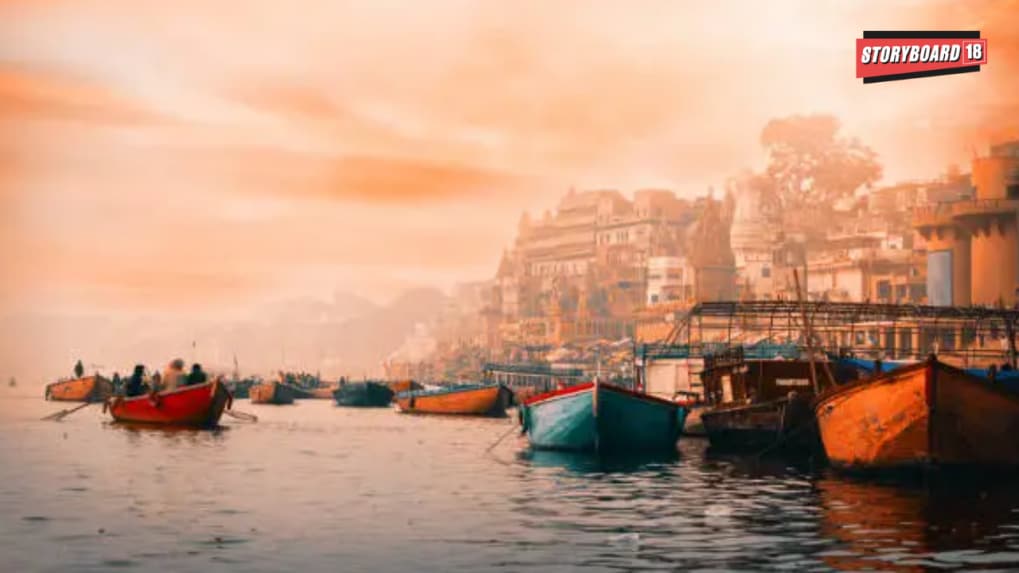Advertising
From Pink Slips to Silent Sidelining: Inside adland’s layoff and anxiety crisis

India’s festive season has traditionally been associated with shopping, family gatherings, and religious rituals. However, an emerging trend in 2025 indicates that consumers are increasingly splurging on travel and experiences, transforming the way Diwali and other festivals are celebrated. From short getaways and spiritual trips to curated cultural experiences, Indians are looking to blend celebration with leisure, creating a new dimension of festive spending.
According to reports, bookings for domestic travel during the Diwali period have surged compared to last year, particularly for short-duration trips and experiential packages. Online travel portals, airlines, and hospitality chains report that urban consumers are not only allocating part of their festive budget to products but also to creating memorable experiences.
Short Getaways: Weekend Trips Take the Lead
With long weekends around Navratri and Diwali, weekend getaways have become a major part of festive planning. Reports show a significant uptick in domestic hotel bookings for popular weekend destinations, including hill stations, beach towns, and heritage cities.
Urban millennials and families are driving this trend, seeking quick escapes to recharge during the festival period.
Popular destinations this year include Jaipur, Udaipur, Rishikesh, Lonavala, and Coorg.
Early booking is critical: high occupancy rates and surging travel demand make securing accommodations in peak festive windows a priority.
These short trips often combine relaxation, sightseeing, and festive celebrations, offering a hybrid experience beyond traditional shopping.
Spiritual & Pilgrimage Travel: Tradition Meets Convenience
Festivals are also driving spiritual travel, with devotees planning trips to temples, ashrams, and pilgrimage circuits during the Diwali season. According to reports, destinations like Varanasi, Tirupati, Kedarnath, and Shirdi have seen spike in bookings on online portals and through travel agents.
Packages often include guided tours, accommodation, and local transportation, providing convenience for urban families.
Spiritual trips are increasingly booked online, with platforms offering bundled deals, early-bird discounts, and EMI options to attract middle-class and urban travelers.
This blend of spirituality and travel highlights a shift toward planned, curated festive experiences rather than last-minute trips.
Experiential Spending: Beyond Traditional Gifting
A notable shift in 2025 is the rise of experience-based spending, which includes:
Cultural experiences: Workshops, heritage walks, and curated city tours.
Wellness & leisure: Spa packages, yoga retreats, and boutique hotel stays.
Adventure activities: Short treks, river rafting, and eco-tourism trips.
Urban consumers are increasingly allocating part of their festive budgets to activities that create memories, instead of just buying goods. These experiences are often shared on social media, reinforcing the perception of value and aspiration.
Travel Platforms & Offers: Making Premium Accessible
The surge in festive travel is closely tied to online travel agencies (OTAs), flight aggregators, and hotel booking platforms. Many consumers are leveraging:
Early-bird discounts and promo codes
Credit/debit card offers and cashback deals
EMI and flexible payment options
These options make premium experiences more financially accessible, encouraging travelers to upgrade from basic accommodations to boutique or luxury stays.
OTA platforms such as MakeMyTrip, Yatra, Cleartrip, and hotel chains report record bookings for mid-to-high tier properties.
Bundled packages (transport + stay + activity) are increasingly popular among families seeking one-stop convenience.
Consumer Mindset: Experiential Value Over Material Goods
Several media reports highlight a broader mindset shift among Indian consumers: spending on experiences is increasingly valued over mere ownership.
Young professionals and urban families are prioritizing memory-making over possessions, reflecting evolving lifestyle aspirations.
Seasonal festivals are being viewed as opportunities to combine leisure, celebration, and personal enrichment.
Even traditional gift-giving is shifting toward experiential gifts such as travel vouchers, adventure activities, and wellness retreats.
This trend complements the ongoing premiumisation seen in physical and online shopping, with consumers seeking enhanced value across both goods and experiences.
Regional Trends: Tier-1, Tier-2, and Tier-3 Cities
While Tier-1 cities like Mumbai, Bengaluru, Delhi, and Pune dominate bookings for premium experiences and short getaways, Tier-2 and Tier-3 cities are catching up. Reports in TOI indicate:
Tier-2 travelers often opt for budget-friendly curated packages rather than luxury experiences.
The rising penetration of OTAs and digital payments is enabling Tier-2 consumers to access curated weekend trips and festive experiences previously limited to metro residents.
Cultural and religious tours remain popular in smaller cities, blending spirituality with leisure.
Planning Smart: Tips for Festive Travel
For consumers who want to make the most of the festive travel trend, media-backed insights suggest:
Book early: Flight tickets, trains, and hotels sell out quickly in peak festive windows.
Check bundled deals: Many OTAs and hotels offer packages that combine stay, meals, and activities.
Leverage bank/OTA offers: Promo codes, card discounts, and cashback can reduce costs significantly.
Prioritize safety and cancellation policies: Festivals coincide with high demand; flexible bookings mitigate last-minute changes.
Balance shopping and experiences: Allocate budgets wisely between traditional purchases and experiential spending.
These steps can help consumers enjoy premium festive experiences without overspending.
The Bigger Picture: Redefining Festive Spending
The 2025 festive season reflects a transformative shift in Indian consumer behaviour:
Material purchases still dominate, especially for essentials, electronics, and fashion.
Experience-driven spending, including travel, wellness, and cultural activities, is emerging as a parallel and rapidly growing segment.
Urban millennials, in particular, are embracing this trend, using the festive season as an opportunity to celebrate, recharge, and create lasting memories.
For brands and travel platforms, this opens opportunities to design curated experiences, offer bundled packages, and create marketing campaigns that resonate with aspirational consumers.
For consumers, understanding this shift allows for smarter festive budgeting that balances traditional shopping with premium experiences, creating a more holistic and enriching celebration.
From purpose-driven work and narrative-rich brand films to AI-enabled ideas and creator-led collaborations, the awards reflect the full spectrum of modern creativity.
Read MoreLooking ahead to the close of 2025 and into 2026, Sorrell sees technology platforms as the clear winners. He described them as “nation states in their own right”, with market capitalisations that exceed the GDPs of many countries.